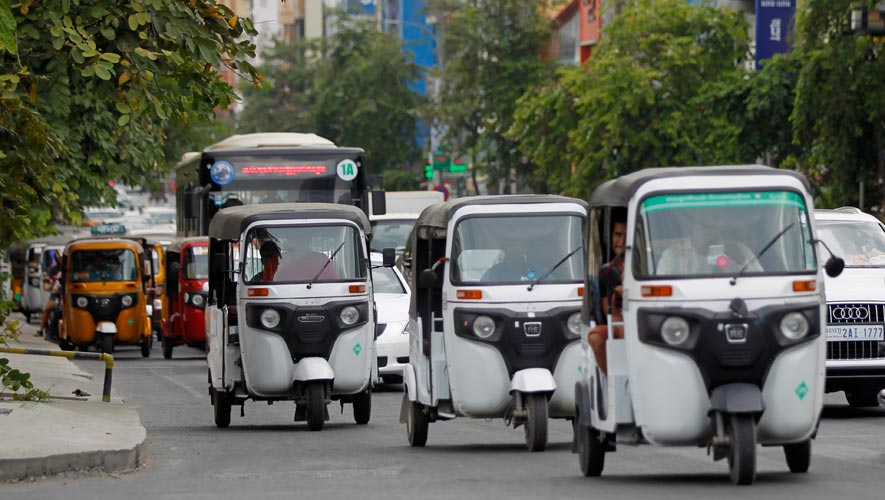Phnom Penh is no stranger to the concept of ride-hailing. In 2016, its first homegrown ride-hailing service by Exnet hit the streets. Since then, the city received seven other players.
For the latest Cambodian Business news, visit Khmer Times Business
Most are operating on the fringes of the market as popular players Singapore-based Grab Holdings Inc, and local company PassApp Technologies Co Ltd consume the larger part.
Recently, South Korea-based ride-hailing service provider Mass Vehicle Ledge Foundation Pte Ltd (MVL), which operates TADA app, joined the market, bringing with it a new business model to rival its contemporaries.
MVL’s zero-commission model where drivers need not pay the app provider any commission, currently practiced by Grab. Drivers under Grab pay a commission of 25 percent to the company.
Drivers tend to work under multiple ride-hailing services to earn more. TADA drivers could likely earn a full sum from rides without the obligation of commissions.
Despite the presence of two ride-hailing giants in the market, MVL is not intimidated, believing they would be able to capture a market share on the back of their business model.
“When our parent company decided to expand, we wanted a regional presence but we weren’t aware of the growing Cambodian market,” says TADA Cambodia’s operations head, Kalyana Phal.
During a visit to Phnom Penh, MVL founder Kay Woo realised the high usage of smartphone and presence of ride-hailing service, she explains.
Apparently, Woo was confident that TADA would be able to sustain due to low operational cost and support from the parent company.
It is present in Singapore, South Korea and Vietnam. If things go as planned, TADA will expand to Siem Reap and Sihanoukville in the second half of this year.
Over time, Grab and PassApp’s main hold on the market formed a challenge for small local players to survive in the market. Exnet sought a new income by generating advertising revenue.
“We look at competition positively. A competitive market means that there is a good share (for everyone). We want to focus on the niche market,” Phal says.
The zero-commission concept stems from a study conducted by MVL which showed the impact on drivers resulting from the payment of commissions.
While it relieves drivers off their dues enabling them to earn a profit, MVL is expected to make its margin on a business-to-business model by using blockchain technology.
“We are creating an ecosystem that allows participants to upload vehicle data for secondhand car dealers, self-driving car makers, and insurance companies.
“We want to build a good relationship with partners in the mobility and banking sector to generate revenue,” says Phal.
In the meantime, MVL will work on convincing drivers that the business model benefits them. She adds that MVL is not interested in monopolising the market as customers deserve choices.
“We want people to choose what they want and we want better livelihood for the drivers,” Phal says.




